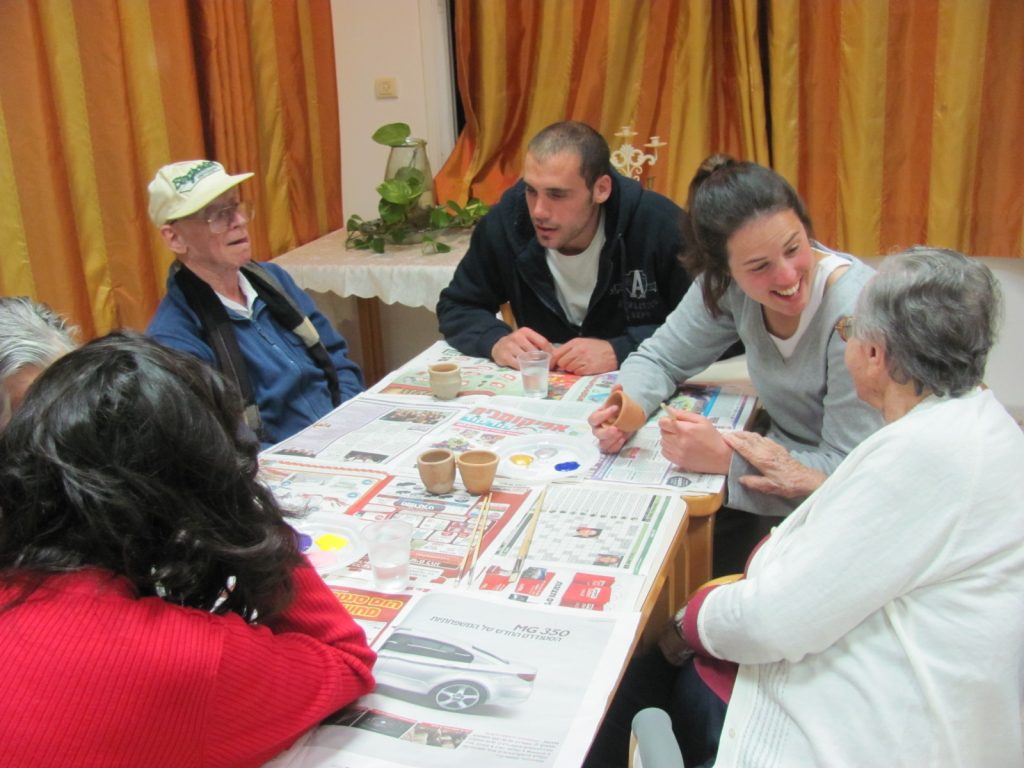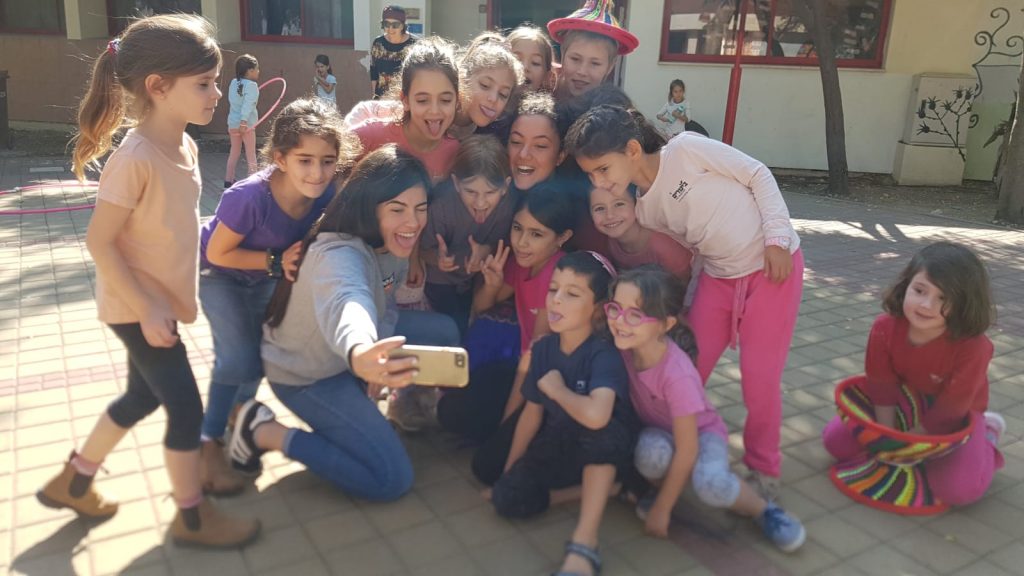Gil Oz
The Gil Oz Association in Emek HaMa’ayanot is a well-known, long-standing establishment in the Emek. It serves as a warm home and meeting place of activity for seniors in the region and provides an extensive range of pastimes covering a variety of interests for people over 60 years old and their families. Participants volunteer throughout the year at the Gil Oz Day Center providing individual attention to the seniors, teaching groups that meet regularly, and assisting staff in the operations of the home. They all take part in the main organized events, lead community sing-along evenings, and contribute to the various extra-curricular activities.
A Mechina participant describes her unique relationship with the Emek seniors at Gil Oz:
“Gil Oz is about meeting my ride at the bus stop on Wednesdays, where my volunteering immediately begins by greeting the seniors who are on the ride with me, and chatting about how they’re doing. On arrival at the Center, the moment I step inside I already feel at home with the wonderful Hadar and Ahuva who are constantly at work there, and always welcome you lovingly, not to mention every senior person, who greets you with a “Good Morning” or “How wonderful to see you again”. Our volunteering includes working with the seniors in baking workshops, ceramics, arts and crafts, papier-mâché, and playing board games. We assist them on computers, participate with them in a variety of activities on the festivals, listen to their fascinating personal stories, and create deep connections with them and the staff. In Gil Oz a new, unfamiliar world opens up to you, people in an older age range. You are exposed to events and connections that you never knew existed, and most of all you learn so much. Volunteering was an anchor for me this year. I would wait all week especially for Wednesday to come round; whether I’d chat with Batya about her week during the coffee break, or learn the weekly Torah portion with Yitzchak on the computer, play rummy with Rivka, or bake with Ruti. Gil Oz is not only a place to volunteer, but a warm and loving home; a second family that I acquired this year.”



